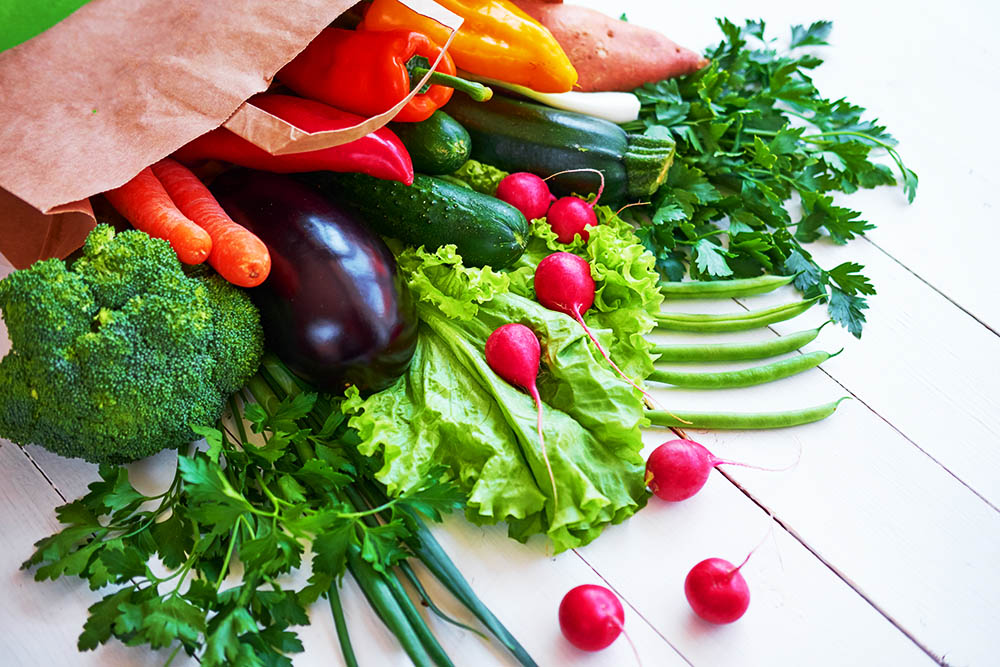The Rise of Organic Foods
Organic food is becoming increasingly popular among consumers, and for good reason! The rise of organic foods has been driven by the desire of people to eat healthier food that is free from harmful chemicals.
Chemicals are widely used in conventional farming to control pests and improve crop yields. However, these chemicals can have a damaging impact on human health and the environment. Organic farming, on the other hand, avoids the use of synthetic pesticides and fertilizers, relying instead on natural methods like crop rotation, crop diversity, and composting.
In this article, we’ll explore the reasons why organic food is the way to go, and how this food can help you lead a healthier and happier life.
The Dangers of Chemical Residues in Conventional Foods
Conventional foods are grown with the use of synthetic pesticides and fertilizers, which can leave behind harmful residues on the produce. These residues can be absorbed into our bodies when we consume them, leading to a range of health problems.
One of the biggest concerns with conventional foods is the presence of pesticide residues. These chemicals have been linked to a range of health problems, including cancer, reproductive disorders, and developmental issues in children.
In addition to the risks posed by pesticide residues, conventional foods may also contain other harmful chemicals. For example, many farmers use antibiotics and growth hormones on their livestock to boost growth rates and prevent disease. These chemicals can end up in meat and dairy products, and have been linked to health problems like antibiotic resistance and early onset puberty.
The Benefits of Organic Foods
Organic foods are grown and produced using natural methods that do not rely on synthetic pesticides, fertilizers, antibiotics, or growth hormones. These foods are free from harmful chemicals that can have a negative impact on human health and the environment.
One of the biggest benefits of organic foods is their nutritional value. Studies have shown that organic foods are generally higher in nutrients like vitamin C, iron, and magnesium when compared to their conventional counterparts. This is because organic farming methods focus on enriching the soil and promoting the health of the crop, rather than simply boosting yields.
Organic foods are also better for the environment, as they rely on natural methods like crop rotation, composting, and natural pest control measures. This can help to reduce the amount of pollution and greenhouse gas emissions associated with conventional farming practices.
How to Incorporate Organic Foods into Your Diet
Incorporating organic foods into your diet is easy, and can be done in a variety of ways. Here are a few tips to get you started:
1. Shop at your local farmers’ market – Many small farmers grow organic produce that is sold at local farmers’ markets. This is a great way to support small businesses and get fresh, organic produce.
2. Buy in bulk – Many organic food stores offer bulk purchasing options for items like grains, nuts, and dried fruit. Buying in bulk can help you save money and reduce packaging waste.
3. Make your own food – Cooking at home using organic ingredients can be a great way to ensure that you are eating healthy and avoiding harmful chemicals.
4. Start small – Incorporating organic foods into your diet can be a gradual process. Start by making small changes, like switching to organic milk or eggs, and work your way up from there.
The Future of Organic Foods
The future of organic foods is looking bright! As consumers become more aware of the benefits of organic food and the dangers of conventional farming practices, demand for organic foods is likely to increase.
In addition to consumer demand, governments around the world are beginning to take action to support organic farming. For example, the European Union provides subsidies to farmers who adopt organic farming practices, while the US Department of Agriculture has launched programs to help farmers transition to organic farming.
While organic foods may still be more expensive than conventional foods in some cases, the benefits they offer in terms of health and the environment make them well worth the investment.
Conclusion
Organic foods are the way to go if you want to lead a healthier and happier life. These foods are free from harmful chemicals that can have a negative impact on human health and the environment, and are higher in nutrients than their conventional counterparts. Incorporating organic foods into your diet is easy, and can be done in a variety of ways. With the future looking bright for organic farming, now is the perfect time to make the switch to organic foods.
